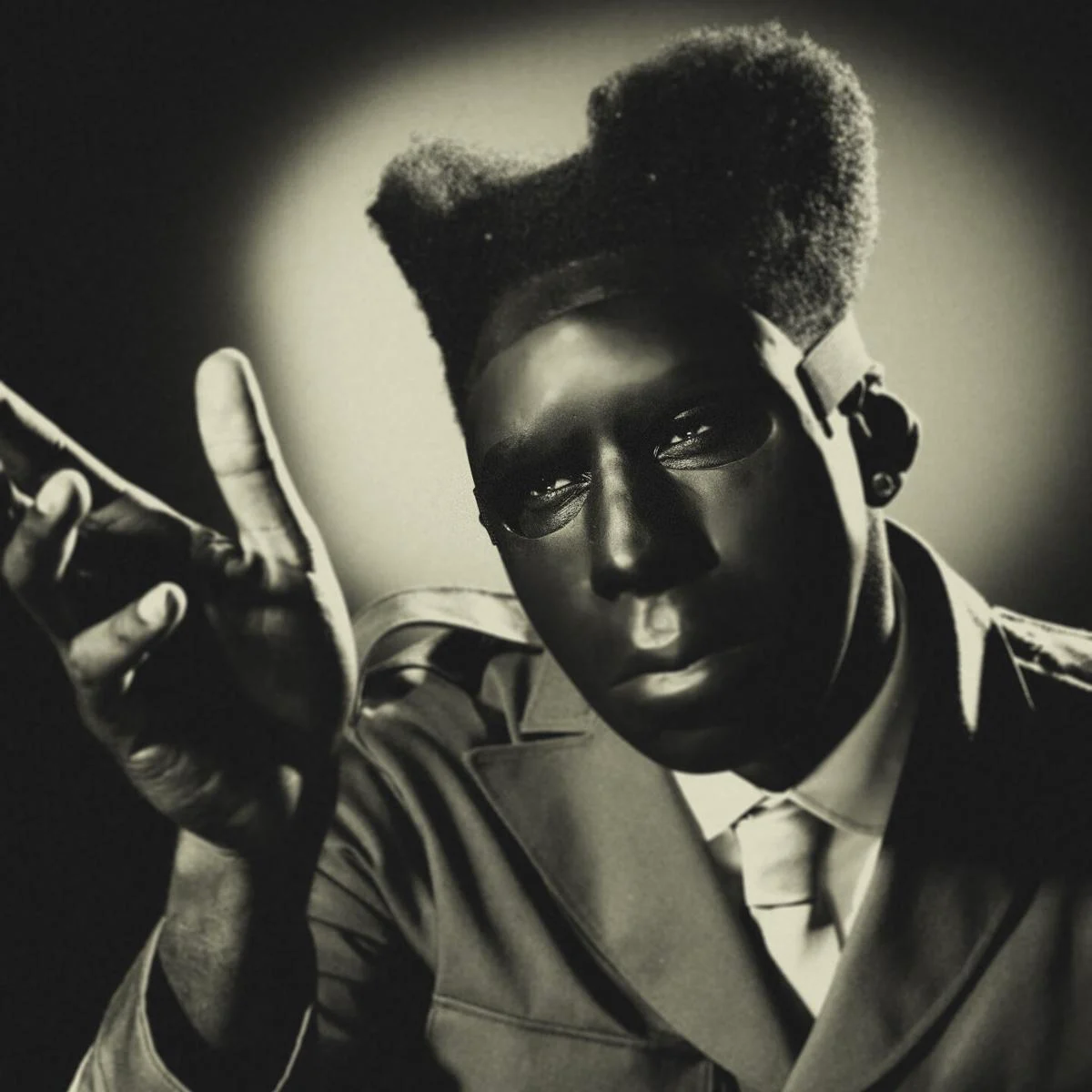On Oct. 28, Tyler, the Creator, released his highly anticipated seventh studio album, “CHROMAKOPIA,” setting fans abuzz with excitement and sparking fresh conversations in the rap world. Tyler continues to evolve musically and personally with each new release, and “CHROMAKOPIA” is no exception. Known for crafting characters in previous albums—like Tyler Baudelaire, Igor and Flower Boy—Tyler uses these personas to explore different facets of himself. This time, however, “CHROMAKOPIA” feels less like another character and more like Tyler reflecting directly on his life and his transition into adulthood. The release of “CHROMAKOPIA” prompted a wave of nostalgia among fans, with many posting on social media about the different “eras” of Tyler’s career they’ve connected with over the years. This sense of growing up alongside him is key to Tyler’s enduring appeal; regardless of where fans start, they’ve been able to fit into the plot in some way. The album arrives at a moment when both he and his audience grapple with the realities of aging, responsibility and the inevitable changes that come with maturity.
“CHROMAKOPIA” opens with “St. Chroma,” a song that sets the tone for the album’s reflective narrative. It features a recording of Tyler’s mother giving life advice—an intimate touch that mirrors the kind of self-reflection that often occurs in one’s thirties. With its angelic arrangements and a feature from Daniel Caesar, the song’s production showcases Tyler’s signature ability to blend lush orchestration with introspective lyrics. “I ain’t never had a doubt inside me,” Tyler confesses before adding, “And if I ever told you that I did, I’m f*ckin’ lyin’,” a statement that encapsulates the album’s theme of navigating uncertainty while appearing outwardly confident.
While Tyler has previously produced stronger albums in terms of cohesiveness, “CHROMAKOPIA” stands out for its raw vulnerability. Lyrically, the album tackles anxieties common to many people entering their thirties. On “I Killed You” and “Hey Jane,” Tyler wrestles with racial identity and pregnancy scares, offering glimpses of growth as he contemplates fatherhood and the weight of adult responsibilities.
Musically, “CHROMAKOPIA” is a kaleidoscope of genres. From the booming hip-hop beats of “Thought I Was Dead” to the emotional melodies of “Take Your Mask Off,” Tyler’s production remains one of his greatest strengths. He continues to push boundaries, blending aggressive synths with warm, soulful instrumentation, creating moments of beauty amidst the sonic chaos. This sonic fusion reflects the core of the “CHROMAKOPIA” theme—Tyler’s journey of navigating the chaos of adulthood while uncovering moments of clarity and growth along the way.
The album isn’t without its flaws. Some lyrics fall flat, especially in moments where Tyler seems to be grappling with conflicting feelings about monogamy and trust on tracks “I Killed You” and “Thought I Was Dead.” The messaging sometimes feels muddled, with tracks like “Noid” and “Rat Tah Tah” expressing suspicion and paranoia about those around him. Still, the chaos of these moments mirrors the internal conflicts Tyler is working through, making the disjointedness feel intentional rather than haphazard.
Tyler uses “CHROMAKOPIA” as a script to deal with his own aging. “Tomorrow” is the epitome of this theme as he struggles with his peers reaching life milestones like getting married and having children while all he has is a sports car and “some silly suits.” Clarity comes with age, and he can now create profoundly reflective songs that he could never have done at the age of 20. He wrote songs that startled parents when he was a rebellious 20-year-old performing with Odd Future; now he’s thinking about possibly becoming a parent himself. He has always made it a point to include it in the music, and “CHROMAKOPIA” is no different.
Critics and fans alike have had mixed reactions to “CHROMAKOPIA.” Many have called it a “letdown,” but it’s important to realize that this album is a deeply personal project for Tyler—it may not be for everyone. It’s abundantly clear Tyler was making this record for himself, not for radio hits or chart-topping singles. By straying away from the usual popular appeal, he is, in a way, freeing himself of the shackles of constantly having to write another “See You Again” or another “EARFQUAKE.” He doesn’t care about streams or popular opinion; instead, he wants his message to be understood. Even songs that some listeners might consider “skips” have a place within the larger narrative Tyler is crafting.
For many Gen Z fans, “CHROMAKOPIA” might not resonate as deeply as his earlier work because it reflects experiences that are harder for them to relate to. It’s a hard pill to swallow watching artists you grew up with mature and change. It’s a stark reminder that they’re no longer 20—and now, you’re the one who’s 20. In many ways, Tyler’s evolution mirrors the listener’s own journey toward adulthood. As much as we might want them to, artists won’t keep making the same music they did in their youth. We are used to having pop culture and media centered around us because society makes it seem like your life ends at 30. “CHROMAKOPIA” may not resonate with everyone right away, but–like Tyler himself–it’s an album that grows with time.
Rating: 8.5/10






